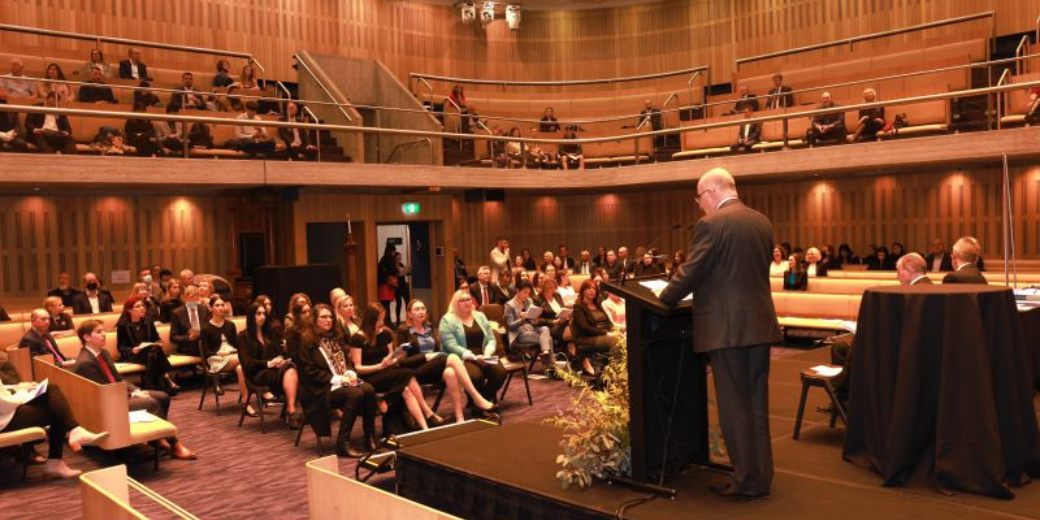With the advent of artificial intelligence in law, the role of lawyers is shifting to become increasingly client-focussed.
We explore the role of empathy in legal work, and how lawyers can take practical steps to better empathise with their clients – ensuring clients are happier and more satisfied at the conclusion of a matter.
The Need for Empathy – Beyond a One-Dimensional Lawyer
Dan DeFoe, Owner and Lead Consultant at legal organisational development group Adlitem Solutions, has spent much of his career investigating the role empathy plays in legal practice. His findings suggest significant change is required.
“Legal commentary spanning three decades, which includes surveys of client satisfaction, chronicles the opening charge that lawyers in effect care more for the facts of the case and applicable legal principles and have little or no concern about the emotional state of their clients,” he said.
“Lawyers orient to fact, not feeling. The message from clients shouts loud and clear that their lawyers’ one-dimensional approach of focusing predominantly on facts needs to change.
“When lawyers become more person-centred, and not exclusively problem-centred, the lawyer/client relationship can blossom and improve.”
As DeFoe mentions, such findings are nothing new. In the 1990s, the US-based Bell and Richard study showed that 76.5% of lawyers sampled preferred thinking over feeling, while only 47.5% of the population preferred the same in their lawyers.
Many believe that the legal education system is to blame, with research suggesting that law schools evoke an “erosion of empathy” within their students.
Ian Gallacher, an Associate Professor of Law at Syracuse University, also argues that law schools are arming their students with a double-edged sword.
“To the extent we succeed in making our students only think as lawyers, we make it difficult, if not impossible, for them to think like non-lawyers,” he said.
“And that, in turn, makes it more difficult for them to communicate with non-lawyers, as they must do much of the time.”
However, a lawyer’s learning curve doesn’t end when they graduate from law school. The College of Law has compiled a list of tips to you in making the most of their client relationships.
Be Empathetic, Not Sympathetic
Before empathy can be introduced into a lawyer/client relationship, it must be distinguished from sympathy – a similar but fundamentally different concept.
“Empathy does not equate with sympathy,” said DeFoe.
“Sympathy emphasises the speaker’s perspective by putting into words the speaker’s reactions to and feelings about the other person’s situation. Sympathetic statements begin with ‘I’. Empathic statements usually begin with ‘you’. That way the other’s thoughts and feelings, not the speaker’s, become the focus of attention.”
Consider How Your Client Perceives the Issue – And Cater to That
Will this case be your client’s first experience in a legal setting? Take the time to explain concepts that might be new to them. Is your client a lawyer too? Provide them with the in-depth, complex updates that you would appreciate if you were in their position.
Bloomberg Law President David Perla says that tailoring your services to your client’s level of comprehension will make a major difference.
“The profession is gradually shifting to a Copernican view that puts the client, rather than the lawyer, at the centre of things,” he said.
“You can see it in little shifts, like the one that occurred some years ago when law firms realized that they should organize their websites by industry (as their clients would think) rather than legal practice areas (as lawyers would think).
“Individual lawyers can take this insight much further, and gain much more from it…lawyers who can truly view issues as their clients do will develop stronger relationships with them. They will understand their goals, fears, and needs at a level of depth that will make them much more effective advocates.”
Practice Active Listening
Kristin B. Gerdy, Director of the Rex E. Lee Advocacy Program at J. Reuben Clark Law School, promotes active listening as a chief tool of empathy.
“Clients who feel that their lawyer understands them are more willing to provide information, including information that might be potentially embarrassing yet important to their case,” Gerdy said.
“Active listening, which is a technique used to demonstrate empathy, has long been heralded as the key to effective legal interviewing and counselling. Through active listening, empathic lawyers can bolster their clients’ trust and more effectively open lines of communication.”
Gerdy further argues that active listening “can also reduce client anxiety, which can lead to increased accuracy and relevancy in what the client tells the lawyer, and can prevent, or at least diminish, hostility toward the lawyer.”




























![How to handle Direct Speech after Gan v Xie [2023] NSWCA 163](https://images4.cmp.optimizely.com/assets/Lawyer+Up+direct+speech+in+drafting+NSW+legislation+OCT232.jpg/Zz1hNDU4YzQyMjQzNzkxMWVmYjFlNGY2ODk3ZWMxNzE0Mw==)



























































